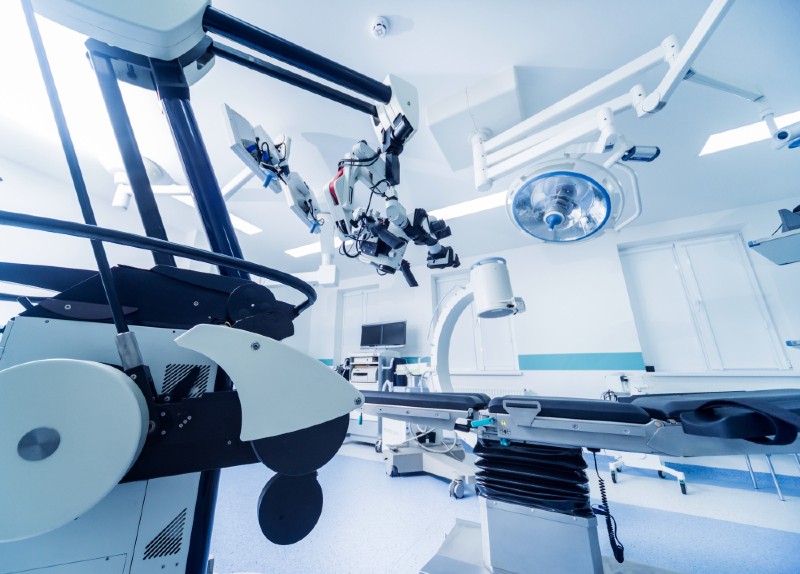The Medical Devices sector plays a critical role in modern healthcare, offering innovative technologies that improve patient outcomes and support clinical decision-making. As the industry evolves, the need for robust Quality Assurance (QA) functions has never been greater — especially at the senior leadership level.
At LDI Search, we work closely with experienced professionals and forward-thinking companies in the medical technology space. For those exploring new opportunities in Quality Assurance, particularly at the Director or Executive level, this guide offers insights into the sector, the career landscape, and what it takes to succeed.

The Importance of QA in Medical Devices
Medical devices are highly regulated for good reason — they have a direct impact on patient health and safety. Whether it’s a diagnostic tool, surgical implant, or wearable sensor, these products must perform consistently, safely, and in full compliance with global regulatory standards.
Quality Assurance ensures that every device meets those expectations. It is more than a regulatory obligation; it’s a strategic function that supports innovation, safeguards users, and protects the organisation’s reputation.
Today, QA professionals are not only responsible for implementing systems and procedures — they are involved in cross-functional decision-making, risk mitigation, and long-term quality strategy. At the senior level, QA leaders are essential partners in guiding product development, driving continuous improvement, and preparing the business for regulatory scrutiny.
Career Progression in QA: What to Expect
A career in QA for medical devices often begins with technical or compliance-focused roles and can evolve into strategic leadership positions. Those at the Director or VP level typically manage multi-site operations, lead quality teams, and represent the company in audits or regulatory reviews.
Key responsibilities may include:
-
Developing and overseeing the Quality Management System (QMS)
-
Leading internal and external audits
-
Managing quality risk and CAPA programs
-
Collaborating with R&D, Regulatory Affairs, and Operations
-
Ensuring compliance with ISO 13485, 21 CFR Part 820, and global regulatory standards
-
Leading quality input for new product development and change control
The role is both operational and strategic, requiring a balance of technical knowledge, leadership ability, and cross-functional collaboration.
Common QA Job Titles in the Medical Devices Sector
The field encompasses a wide range of positions. Titles may vary by organisation, but some of the most common include:
-
Quality Assurance Engineer / Specialist
-
Senior Quality Engineer
-
Quality Systems Manager
-
Supplier Quality Manager
-
Design Assurance Engineer
-
CAPA / Compliance Specialist
-
Audit & Compliance Manager
-
Director of Quality Assurance
-
Head of Quality
-
Vice President, Quality & Regulatory
-
Chief Quality Officer (CQO)
For candidates considering a move to Director level or beyond, leadership experience, business acumen, and a strong grasp of regulatory expectations are essential.
Advancing a Career in Quality Assurance
Professionals looking to step into senior QA roles — or further advance — should focus on both technical expertise and strategic leadership. Several factors can help accelerate growth in this area:
1. Regulatory Knowledge
A strong understanding of ISO 13485, 21 CFR Part 820, and risk management under ISO 14971 is critical. Familiarity with international standards such as EU MDR, MDSAP, and TGA requirements is also increasingly valuable.
2. Leadership & Communication
Directors and senior managers must influence stakeholders across the business. Clear communication, the ability to manage change, and mentoring junior team members are all key traits.
3. Certifications
While not mandatory, professional certifications can enhance credibility:
-
ASQ Certified Quality Auditor (CQA)
-
Certified Manager of Quality/Organizational Excellence (CMQ/OE)
-
Lead Auditor – ISO 13485
-
Six Sigma Green/Black Belt
4. Digital Competence
With the rise of connected devices, software as a medical device (SaMD), and AI-driven diagnostics, experience with software validation, cybersecurity, and digital health compliance is becoming more relevant.
5. Strategic Thinking
At the Director level, quality must be embedded in broader business strategy. Being able to link quality goals with product development timelines, market access, and commercial objectives is crucial.
Why Now Is the Right Time
The medical devices industry is expanding rapidly, driven by demographic shifts, technological innovation, and growing demand for remote and personalised healthcare solutions. With that growth comes increased regulatory scrutiny — and a heightened need for experienced quality leaders who can ensure both compliance and agility.
For professionals with a background in QA, there is a clear opportunity to step into more senior, influential roles. Whether managing a global QMS or leading cross-functional quality initiatives, the impact is significant — both for the organisation and for patients around the world.
How LDI Search Can Help
We specialise in placing senior-level professionals across Quality Assurance, Regulatory Affairs, and Operations within the medical devices, pharmaceutical, and life sciences sectors.
If you’re considering your next move — or looking to build a leadership team that can elevate your organisation’s quality standards — we’re here to help.
Explore our current QA openings or get in touch to start a conversation with our specialist recruiters.

